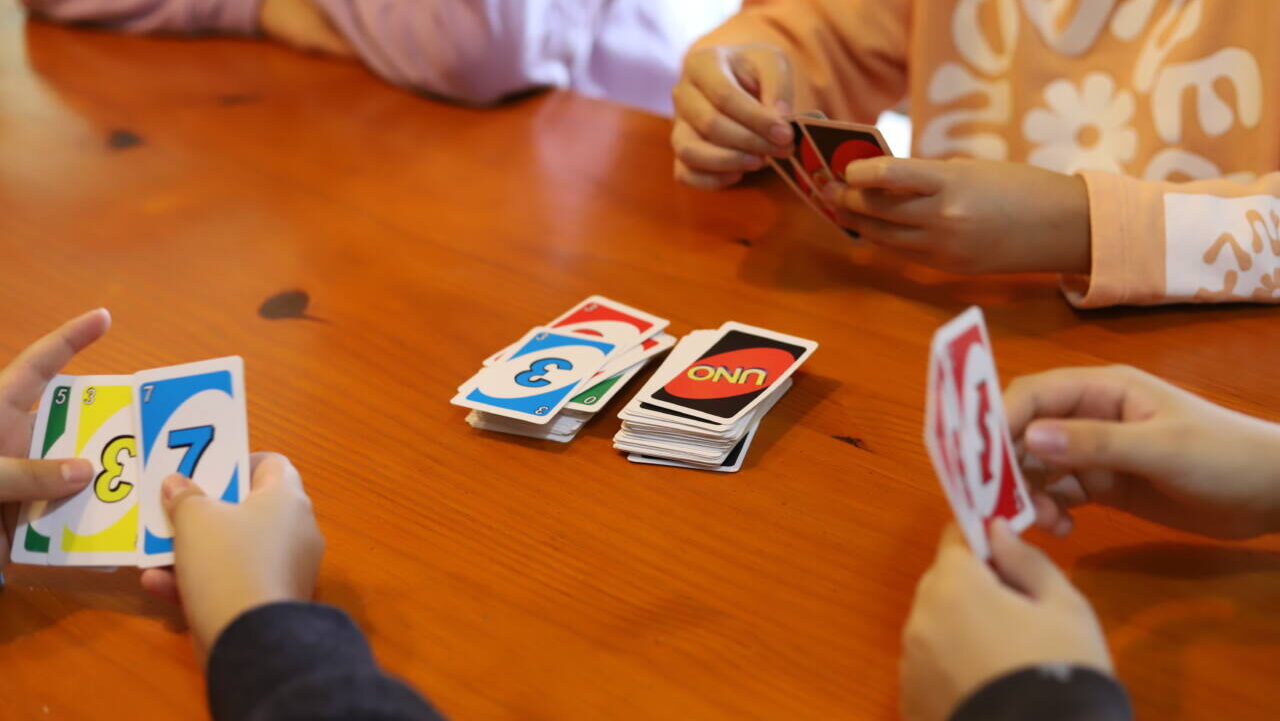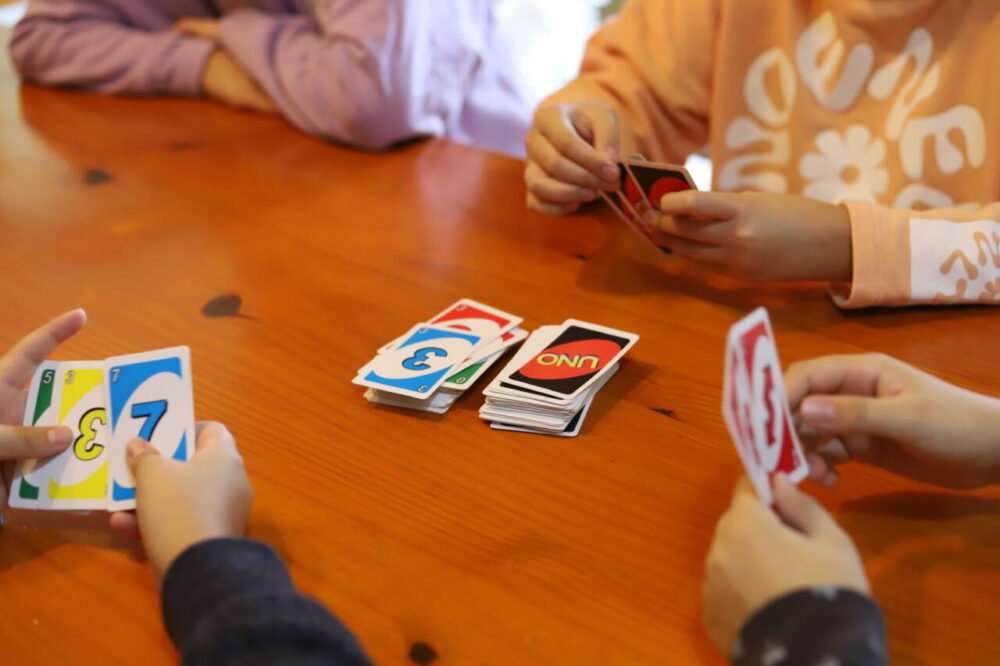The products and services mentioned below were selected independent of sales and advertising. However, Simplemost may receive a small commission from the purchase of any products or services through an affiliate link to the retailer's website.
If you’re like me, you probably grew up playing Uno — and still play today. After all, it’s ageless, right? You’ve probably had to “Draw Two” more times than you wanted to, and let’s not forget about the “Wild Draw Four” card.
Of course, there are also the fun moments. You get excited to blurt out “Uno!” when you only have one card remaining — knowing you just may win this thing. But do you really know how to play Uno, or have you been playing the game wrong all this time? If you’re like me, you might just discover some key Uno rules you were never aware of, and that can really change the game.
Set-up and Play
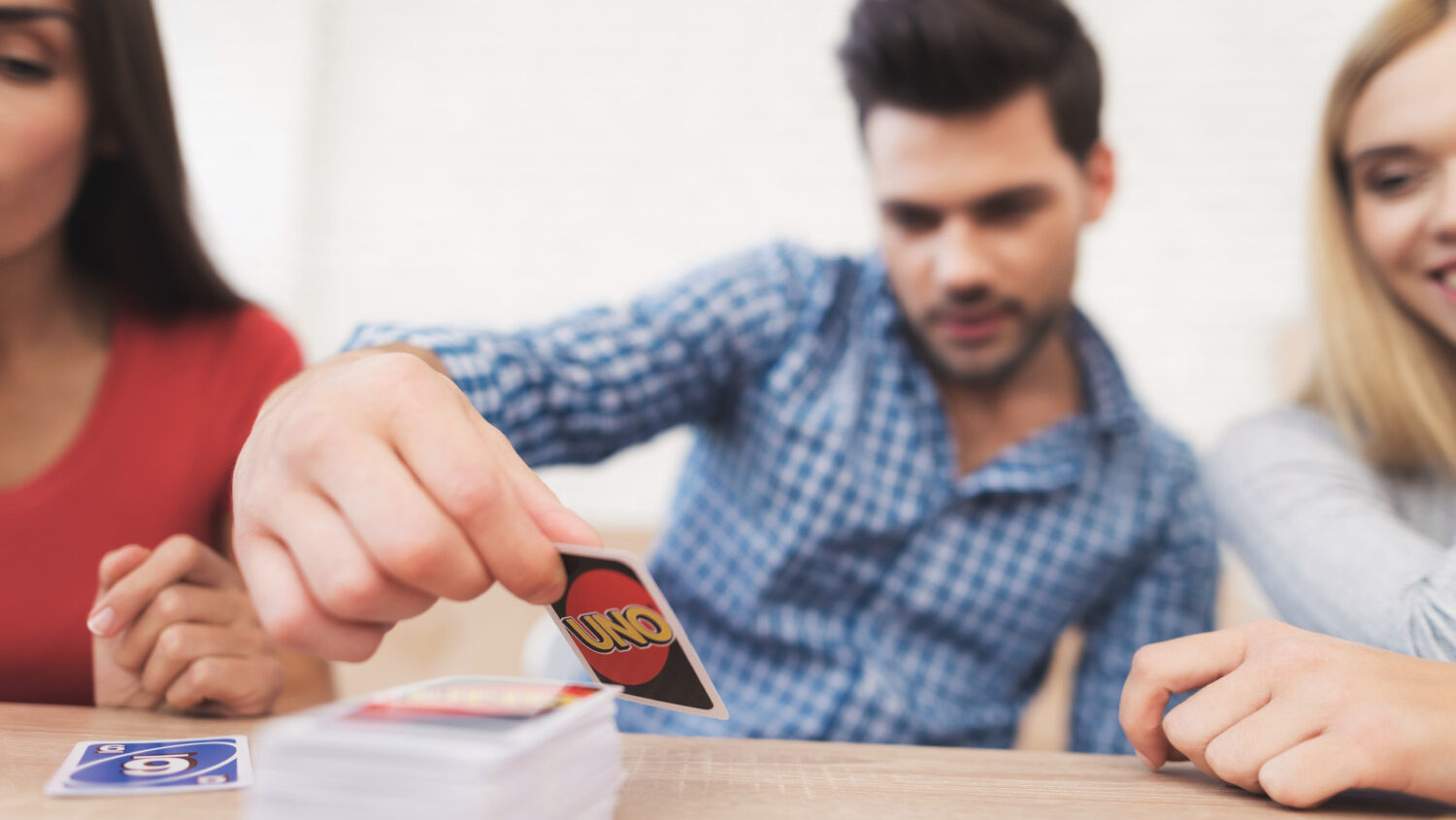
Setting up a game of Uno is pretty simple. According to Uno’s instructions, you can accomplish the setup in four basic steps:
- Start by having each player draw a card. The player with the highest number card will be the dealer.
- Have the dealer shuffle the deck and then deal each player seven cards.
- Put the remaining cards face down on the table. This is your draw pile.
- Turn over the top card from the draw pile and place it down on the table. This is the beginning of your discard pile.
UNO is a game of matching. The goal is to get rid of all of your cards first and accumulate points before starting the next round. Here’s how it works:
- The person to the left of the dealer starts the game.
- Match a card from your hand to the top card on the discard pile. Cards can be matched according to number, color or symbol. Put the matching card down on top of the discard pile.
- If you don’t have a matching card, take one from the draw pile. You can put that card down on your same turn if one element on it matches the last card played. If there’s still no match, it’s the next player’s turn.
- You can choose to not to play a card, but you must take a card from the draw pile. If that card matches the last discard, you can put it down during your turn.
When you put down a number card on the discard pile, things are pretty simple and the game moves onto the next player. But if you put down an action card, you can change the game. For example, putting down a reverse card reverses the order of play. A wild card gives you the chance to decide which color the next player needs to match to be able to discard a card. We’ll get into the details about how each type of card works in a minute, but you can use these cards to strategize and make the game more challenging for other players.
The round continues until one player has discarded all of their cards. There’s a process to this:
- Yell “Uno” (which means “one”) when you discard your next-to-last card. This warns other players that you’re almost out of cards. If you don’t yell “Uno” and someone catches you before the next player starts their turn, you have to draw two cards.
- When a player discards their last card, the round is over. Count up the points and then begin the next round.
These directions apply not only to the Uno Classic Game, but to other types of Uno games, too.
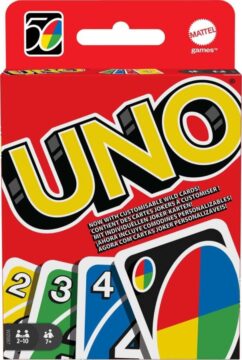
What Do Uno Action Cards Mean?
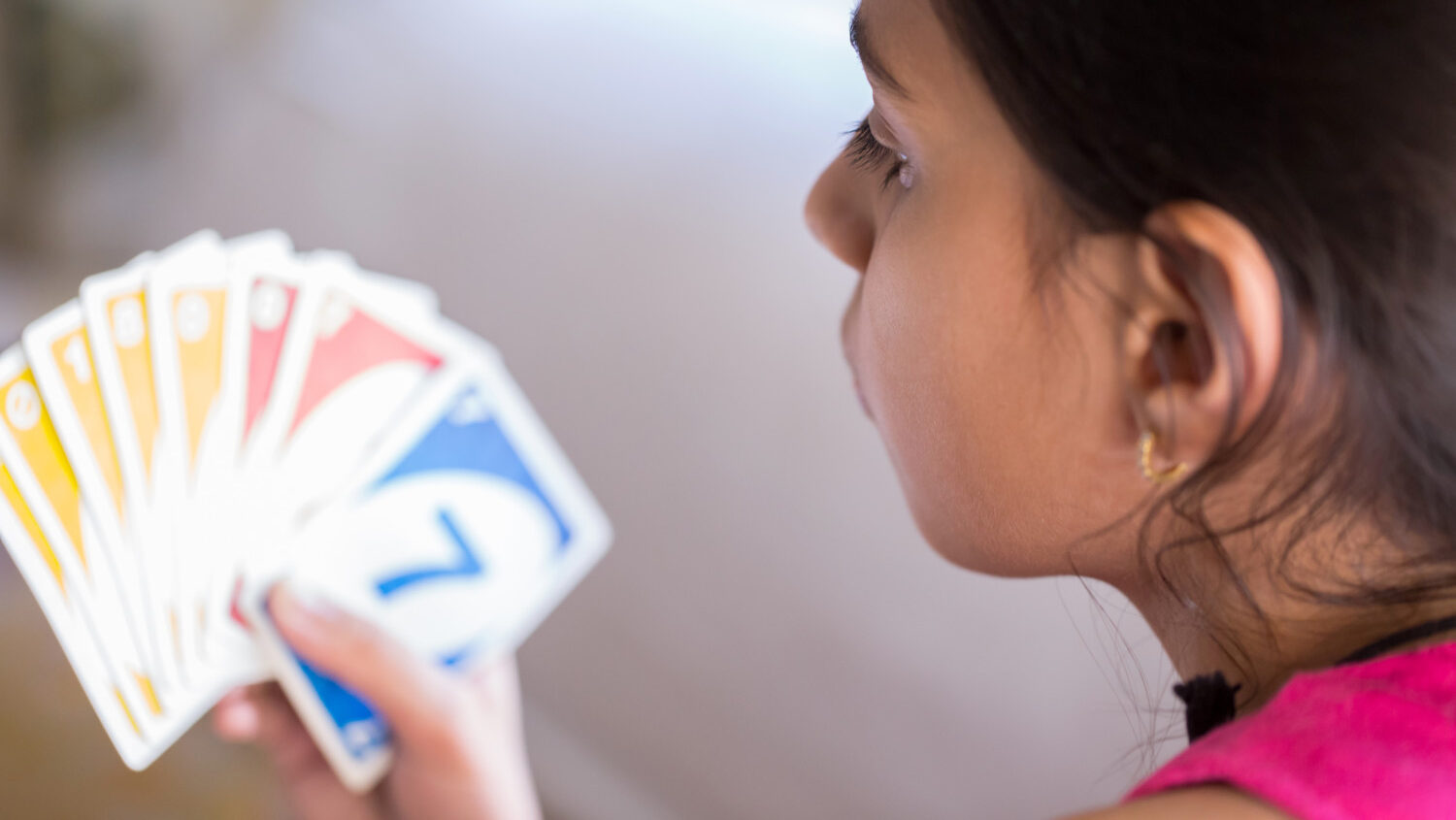
Number cards from 0 to 9 are the basis of Uno. These cards are straightforward.
Things get more complicated with the action cards. These are the cards that give you temporary control of the game, and you can use them to your advantage. Here’s what happens when you play these action cards:
- Draw Two: The next player has to take two cards from the draw pile and miss their turn.
- Reverse: The direction of play reverses, so the player who took a turn just before you will take the next turn.
- Skip: The game skips over the next player, and they lose their turn.
- Wild: You can choose the color to be played going forward.
- Wild Draw 4: You can choose the color to be played going forward. Additionally, the next player must draw four cards and lose their turn.
- Wild Shuffle Hands: You must collect every card from each player, shuffle the cards, and then deal them back to the players. Some players may receive more or less cards than they had before the shuffle.
- Wild Customizable: Write any new house rule on the card with a pencil. Three cards come with a set and you can use one or all during each game, but you need to create these cards before gameplay starts and make sure everyone consents to use them.
The Wild Customizable cards can be a fun way to mix things up. And, if you love the idea of that, you’ll want to try Uno Remix, which lets you create your own rules each time. You can even target specific players, if you like.
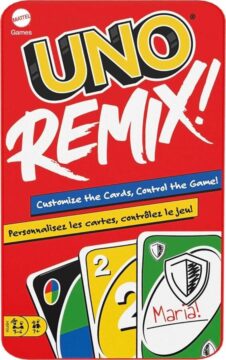
How To Score Correctly
The official Uno instructions include a section on how to score in Uno. Basically, you’re supposed to get points for all the cards your opponents are still holding.
Here’s the breakdown of how much each card is actually worth, according to Mattel’s website (and your Uno instructions, if you haven’t lost them — as I have).
- All number cards (0-9): Face Value
- Draw 2: 20 points
- Reverse: 20 points
- Skip: 20 points
- Customizable: 40 points
- Wild: 50 points
- Wild Draw 4: 50 points
Other Uno versions may incorporate special cards worth different amounts of points. For example, Uno’s 30-Year Anniversary Edition, released in 2001, had a special Anniversary card that was worth 100 points.
If your old Uno game is getting tired, consider upgrading to the Uno Giant game. The cards are three times larger than your traditional Uno game, so reading cards and adding up totals is easier. Plus, the larger cards may be easier for kids to hold.
How to Win Uno
According to Mattel’s Uno rules, the true Uno winner is the first player to reach 500 points.
So, assuming you play multiple rounds of Uno with your friends or family, you could rack up a ton of points. And what you probably think of as winning the game is actually just winning a round. Play multiple rounds until someone reaches 500 points to determine the true winner.
This makes me wonder how many games all of us have actually lost instead of won, since we were probably determining the winner incorrectly.
We’ll definitely be keeping this scoring method in mind during our next Uno match! And maybe you can teach your opponents a thing or two about the correct way to play Uno.
Natalia Lusinski also contributed to this report.
How to play Uno, because you’ve probably been playing it wrong originally appeared on Simplemost.com


